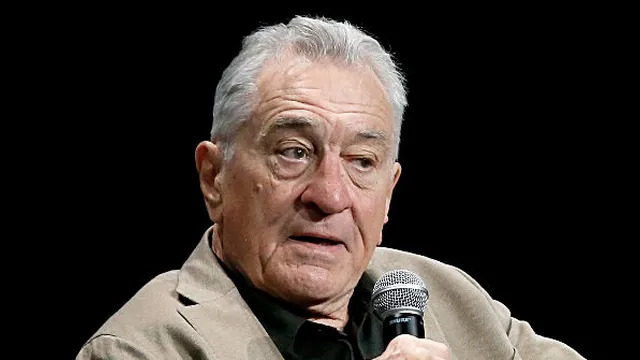
Robert De Niro disrupts Megalopolis Q&A with anti-Trump remarks
2024-09-27 00:00- During a Q&A session at the New York Film Festival, Robert De Niro criticized Donald Trump while discussing Francis Ford Coppola's film.
- De Niro emphasized the need for voter participation in the upcoming 2024 election, expressing concerns about the political climate.
- The event illustrated the challenges of separating artistic discussions from pressing political issues in contemporary society.
Express your sentiment!
Insights
During a Q&A session at the New York Film Festival, actor Robert De Niro diverted the discussion from Francis Ford Coppola's film, 'Megalopolis,' to express his concerns about the political landscape in the U.S. De Niro emphasized the importance of voting and defeating Donald Trump in the upcoming 2024 election, labeling Trump as a threat to the country. Despite Coppola's attempts to steer the conversation back to the film's themes of societal decline and rebirth, De Niro and fellow director Spike Lee focused on political issues. De Niro's remarks included harsh criticisms of Trump, suggesting that he would be incapable of directing a film and accusing him of wanting to destroy the nation. This incident highlights De Niro's ongoing pattern of using public platforms to voice his political opinions, particularly against Trump and the Republican Party. The event showcased the intersection of cinema and politics, as the filmmakers struggled to maintain focus on their artistic work amidst pressing national concerns.
Contexts
In today's world, the intersection of celebrity and politics has become a powerful force in shaping public opinion. Celebrities, with their vast fan bases and the reach of social media platforms, have the ability to rally support for social change and political causes. However, this influence is a double-edged sword, as it can also polarize public sentiment and overshadow the complexities of political issues. As seen with figures like Taylor Swift, who transitioned from a pop icon to a political activist, the impact of celebrity endorsements can sway fans' political beliefs, sometimes leading them to support candidates or causes that contradict their own views. The historical context of celebrity involvement in politics dates back decades, with icons like Frank Sinatra using their platforms to advocate for civil rights and social justice. The Rat Pack, a group of entertainers in the late 1950s and early 1960s, not only entertained but also engaged in political activism, aligning themselves with the Democratic Party. This legacy continues today, as celebrities leverage their influence to address pressing social issues, often igniting passionate discussions among their followers. However, the effectiveness of celebrity endorsements is met with skepticism. A YouGov poll revealed that only 9% of Brits favor celebrity involvement in political issues, with a significant portion of the population expressing opposition. Critics argue that celebrity endorsements can dilute the seriousness of political discourse, reducing complex issues to mere soundbites and entertainment. Ultimately, while celebrities possess the power to shed light on important issues, it is crucial for the public to engage critically with the information presented. Fans should strive to form their own opinions rather than blindly following the beliefs of their favorite stars, ensuring a more informed and balanced approach to political engagement.